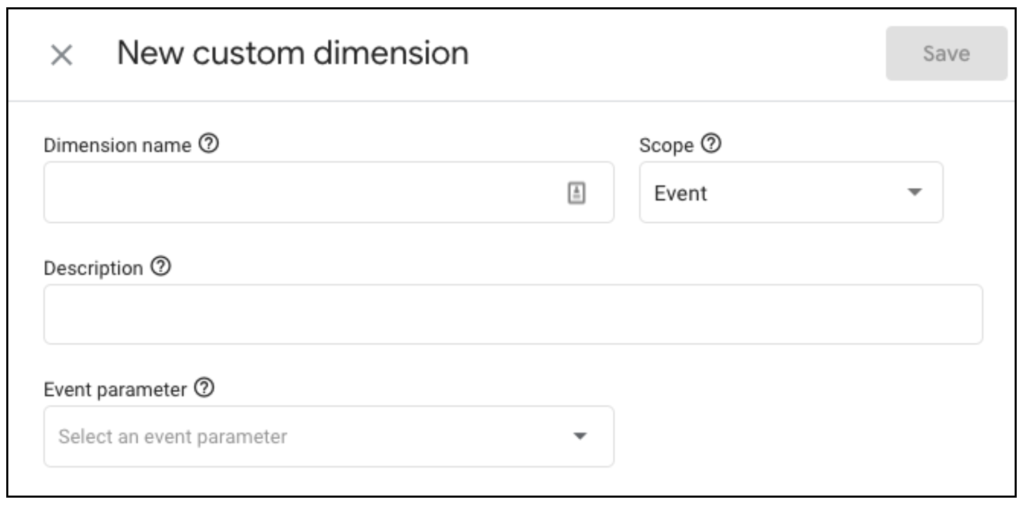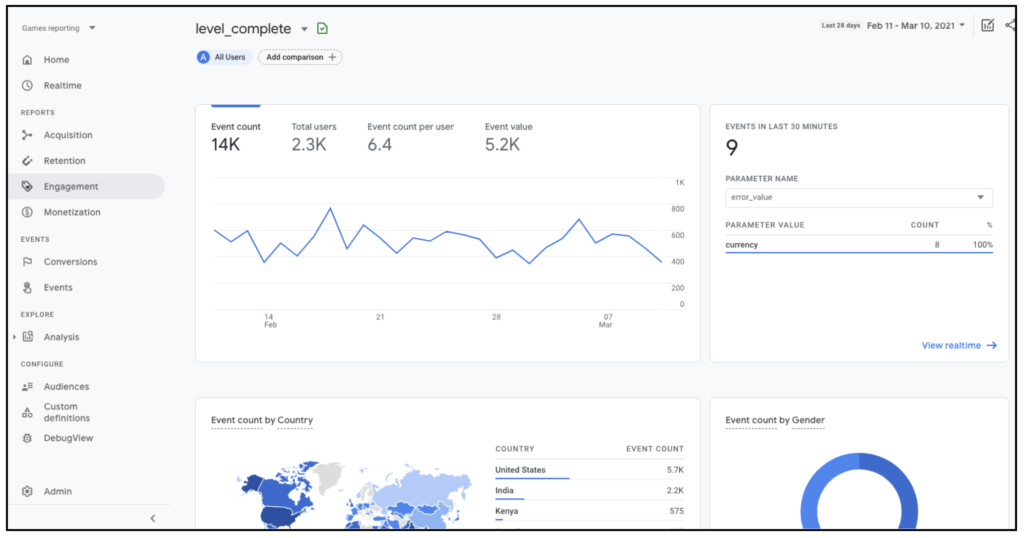Welcome to the fourth post in the Google Analytics 4 in 400 Words Series.
[NOTE: In March 2022, Google announced the sunsetting of all Universal Analytics (Google Analytics 3) properties. UA will stop processing new data on July 1, 2023. Google Analytics 360 —the paid version of UA—will stop processing on October 1, 2023. After these deadlines pass, Google Analytics 4 will be your Google Analytics solution. We recommend setting up GA4 right away to ensure that you have the most historical data collected before UA sunsets.]
Google Analytics 4 (GA4) exclusively measures data with Events, this is a significant change when compared to the multiple Universal Analytics (UA) hit types.
While UA defines Pageviews with a Page View hit, GA4 sends a page_view Event.
Each UA Event has a hierarchy of Event Category, Action, and Label. GA4 events are named with a single value and use pass context with parameters.
Evolytics recommends creating a new event strategy instead of replicating your full UA event list.
Google Analytics 4 Event Types
There are four types of Events in GA4:
Automatically Collected
After installing the base GA4 code, both web and app streams collect some events automatically. See the full list here.
Enhanced Measurement
When setting up a web stream, some events can be enabled without any code configuration. This is a major GA4 value-add and these do not count towards the limit of 500 distinctly named events.
Recommended Events
Google recommends vertical-specific (i.e Ecommerce, Travel) events for common measurement scenarios. These do require additional development to implement but provide compatibility with future GA4 functionality and integrate seamlessly with most standard GA4 reports. You can use these regardless of the vertical they’re recommended for.
Custom Events
Custom Events are those not included in the previous event types and require additional development to implement.
Before creating one of these, verify that your need isn’t covered by any of the other event types. Custom event reporting is not as robust in the standard Event reports.
Custom Event names are case-sensitive. Use the same naming between Web and App so your event does not count multiple times against your event limits.
Parameters
Parameters add context and depth to Events, similar to Event Actions/Labels and Event-scoped Custom Dimensions. Some Events pass Parameters automatically, like the page_view Event and the page_title Parameter. Parameters are suggested with Recommended Events and can be created for Custom Events.
You can send up to 25 parameters with each event and have a limit of 50 text and 50 numeric parameters per property. Develop a measurement plan prior to deployment.
In order to use Parameters in Event Reports, you must first configure them as Custom Dimensions/Custom Metrics.

What’s next?
Invest some time in the new reporting tool as it’s quite different from UA but more flexible. Access Event data from the Engagement Report or by drilling down from the Events report.

Looking for an expert to audit and manage your analytics? Contact us to talk about making a positive difference with data for your organization.
Check out all the posts from the GA4 in 400 Words series for the topic most interesting and relevant to you:
- Post 1: Why Your Business Needs GA4
- Post 2: Dual Tagging with Google Analytics 4 and Universal Analytics
- Post 3: Account Structure in GA4
- Post 4: Google Analytics 4 Events
- Post 5: Maximizing User Journey Reporting
- Post 6: Reporting and Comparisons
- Post 7: Audiences and Re-marketing in GA4
Learn more about Evolytics’ Google Analytics Services or Contact Us to talk strategies for your business or orgaEvolytics is a proven Google Analytics 4 implementation expert—we began using it for evolytics.com when it was first released. Contact us about how we can help you implement GA4, if you require GA4 training to get your IT and marketing teams up to speed, or if there are any other GA4 support services we can provide as you prepare for the sunsetting of Google’s Universal Analytics.
